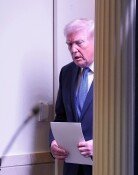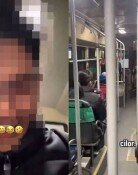Urban Services Project Ready to Launch
Urban Services Project Ready to Launch
Posted January. 12, 2006 03:01,
The Participatory Urban Services project, expected to be the Roh administrations major policy task in the latter half of his term, has its completed framework.
The government is planning to expand the participation of the political parties, civic groups, and residents in order for this to become a nationwide public campaign.
However, as the government has the May 31 local elections and the presidential election at the end of next year, controversy over supposed political intentions will inevitably occur.
On January 11, the Dong-A Ilbo solely acquired information on the governments measures to make the Participatory Urban Services, and according to them, the government has decided to transform massively the cities that have had their roads expanded merely quantitatively into environment-friendly, beautiful, and culturally significant ones.
It is expected that the government will announce the comprehensive report of the Korea Research Institute for Human Settlements (KRIHS) as early as late January.
Three mottos of the participatory urban services include: a healthy and friendly city (shelter), a work-friendly and lively city (workplace), and an enriching and culturally significant city (playground).
As early as the first half of this year, the government is going to suggest the visions and strategies of new cities by forming a committee on participatory urban services (temporarily named) under the umbrella of President Roh. It has also decided to help finance local governments if they come up with plans that suit their local features and ask for financial assistance.
To that end, a public hearing will be held and in the first half of this year, a related law will be established, and then trial projects will be conducted on several cities within this year.
Each local government will have its own local strategies with its Center for Participatory Urban Services, and on the village level, residential forums will be formed, which will then lead to a nationwide campaign.
To gather the related budget, the government has decided to negotiate with the Uri Party on revising the special law on the national balanced development, which allows making an account to boost Participatory Urban Services within the special budget of the national balanced development.
On such a government measure, city planning experts agreed to the governments intention to upgrade the city environments.
However, they are concerned that this could be a political means for the government before the local and presidential elections.
In fact in July last year, President Roh responded to this measure discussed at the meeting of presidential secretaries and key presidential aides, reportedly saying, This could be well used for next years local government elections if its concepts are well promoted, adding, At the right timing, we should make sure that our party leads the efforts. This raised controversy over possible interventions in the elections.
At that time, Cheong Wa Dae explained, It was misunderstood in the process of the intention of President Rohs announcement being briefly summarized.
It is also worrisome that at a time when massive national projects have been started, such as construction of administrative cities and relocation of public agencies, there will be more financial burden.
A member of the Presidential Committee on Balanced National Development, Urban and Regional Studies Professor Cho Myung-rae at Dankook University said, City development encouraging the participation of residents in advanced countries has been a success because they have the long traditions of local governance, adding, Without them, this plan to be dubbed as the President Roh-style New Village Movement will merely end up a political slogan.
Seung-Heon Lee ddr@donga.com jsonhng@donga.com







